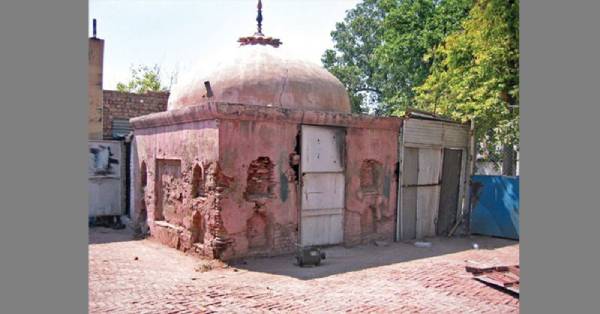
Peshawar : Pakistan’s Peshawar High Court has stopped the Khyber Pakhtunkhwa province’s archaeology department from vacating Panj Tirath, a Hindu religious site declared as the national heritage.
Deputy Director Evacuee Property Trust Board (EPTB) Peshawar Humayun Khan said the provincial archaeology department had given a notice for vacating Panj Tirath.
The Peshawar High Court’s decision Thursday came after the EPTB, which manages the shrines of Hindus and Sikhs, challenged the notice.
Khan said that Panj Tirath, which was declared as the national heritage, is a property of the EPTB.
Panj Tirath, which got its name from the five pools of water present there, also contains a temple and a lawn with date palm trees.
The five pools of the heritage site now come under the ambit of Chacha Yunus Park and Khyber Pakhtunkhwa Chamber of Commerce and Industry.
It is believed that Pandu, a mythical king in the Mahabharata, belonged to this area and Hindus used to come to these pools for bathing during the month of Karteek and worship for two days under the trees.
The site was damaged during the reign of the Afghan Durrani dynasty in 1747, however it was restored by local Hindus during the period of Sikh rule in 1834 and worship started again.
Source : New Indian Express

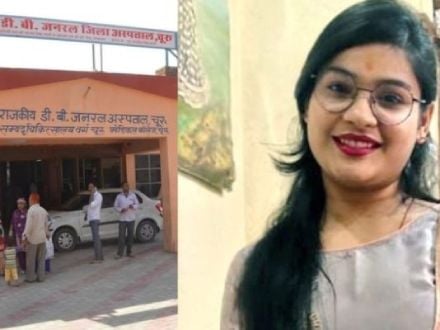 Rajasthan: Woman found hanging at a beauty parlour, Arshad, 3 others booked
Rajasthan: Woman found hanging at a beauty parlour, Arshad, 3 others booked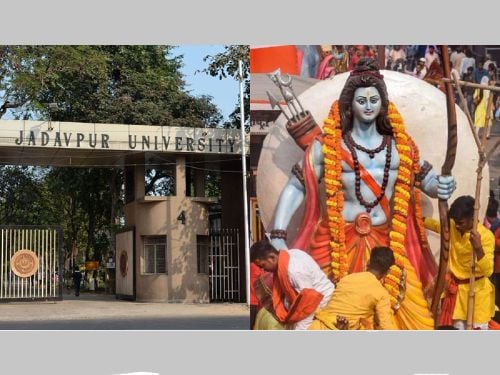 Jadavpur Univ revokes permission to celebrate Ram Navami on campus after granting it
Jadavpur Univ revokes permission to celebrate Ram Navami on campus after granting it Andhra Pradesh: Farooq kills mentally challenged Hindu man for insurance money
Andhra Pradesh: Farooq kills mentally challenged Hindu man for insurance money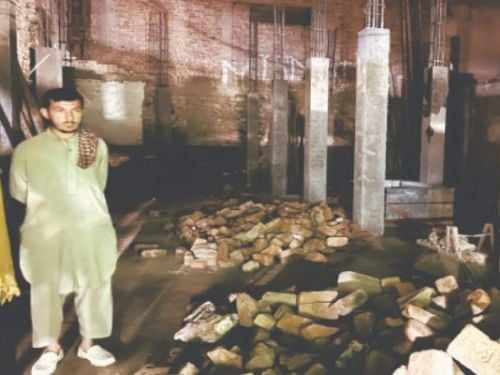 Pakistan: Ancient Hindu temple in Khyber Pakhtunkhwa demolished for commercial complex
Pakistan: Ancient Hindu temple in Khyber Pakhtunkhwa demolished for commercial complex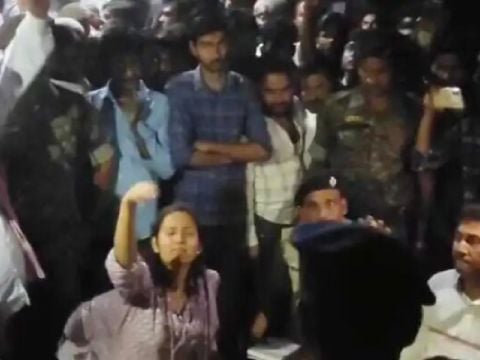 Bihar: Goddess Bhagavati Temple in Araria vandalised and deities damaged
Bihar: Goddess Bhagavati Temple in Araria vandalised and deities damaged Vadodara: Beef supplier Imran Qureshi arrested in beef-stuffed samosa case
Vadodara: Beef supplier Imran Qureshi arrested in beef-stuffed samosa case